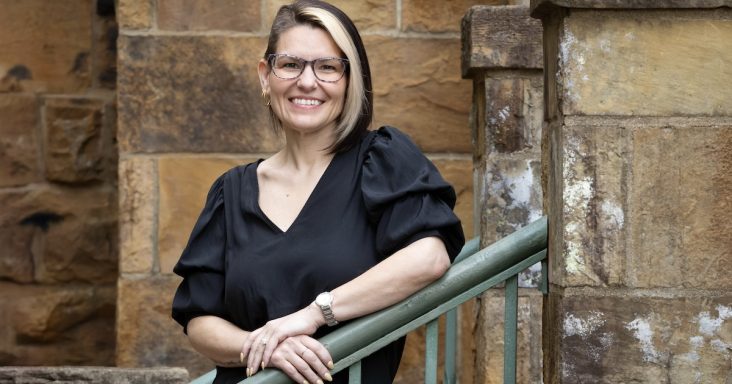University of Arkansas receives $10 million to create mental health hubs
by May 21, 2025 1:27 pm 1,101 views

Johanna Thomas, director of the University of Arkansas' School of Social Work
A University of Arkansas team has received $10 million from the Arkansas Department of Human Services (DHS) to create and implement a central Crisis Hub and Crisis Continuum that will serve Arkansans with behavioral health needs, the university announced Wednesday (May 21).
The UA team is led by Johanna Thomas, director of the UA’s School of Social Work.
“Currently, Arkansas does not have a coordinated statewide system of crisis care to address behavioral health needs for children and adults to this extent,” Thomas said. “What we’re creating together begins with prevention and early intervention, and then focuses on crisis intervention and guidance to follow up with treatment available for those who need it.”
Thomas has more than a decade of experience implementing, deploying and evaluating the effectiveness of behavioral health programs across Arkansas and the United States, according to the release. She will lead a team from the UA’s Fulbright College of Arts and Sciences, including Mark Plassmeyer from the School of Social Work, and Shaun Thomas, Mindy Bradley and Kayla Allison from the Department of Sociology and Criminology.
The team will work with DHS “to coordinate the program, determine subgrants, and implement the department’s strategic plan for statewide prevention, early intervention, and crisis services for children and adults, with an emphasis on infant mental health, school-based behavioral health, and mental health and substance abuse treatment for adults, with a focus on pregnant and postpartum women,” the release notes.
Thomas and her team will also design a unified crisis hub model for the state in collaboration with DHS, schools, community stakeholders and partner agencies.
“Mental health and addiction are statewide issues — so our response has to be statewide too,” said Gov. Sarah Sanders. “Through programs like the new crisis hub, we can address both adults’ and children’s needs early and often. These challenges aren’t unique to Arkansas, but we do have a unique opportunity to address them collaboratively to prevent and treat all Arkansans.”
Seven areas of the state will serve as pilot sites for the crisis care continuum. The pilot sites will be in El Dorado, Monticello/Warren, Fort Smith, Fayetteville, Jonesboro, Helena and Little Rock. The pilot sites will open in stages from late 2025 or early 2026. Thomas said all of the sites will be running by mid-2026.
“The model we create together will be flexible enough to capitalize on pre-existing networks and associations with the providers, like hospitals, who already make up the fabric of the area,” Thomas said. “The shared vision is that the intensity, severity and duration of behavioral crises experienced by individuals will be reduced, saving valuable resources for Arkansas while stabilizing our most vulnerable citizens.”
Thomas said there will be a notice of funding opportunity for the central crisis hub and the mobile crisis teams. She said the crisis hub will open first because a central line is needed for crisis calls.
Thomas said it’s difficult to determine how many people will need the services, but “the need is great for these services across the entire state.“ She provided the following background information on the state:
- In 2020, Arkansas was ranked as the “least healthy state” in the United States, with 17.5% of adults reporting frequent mental distress compared to the national average of 13.2%.
- Also, 457,000 adults in Arkansas have a mental health condition, 125,000 adults in Arkansas have a serious mental illness, and 145,000 of the adults in Arkansas with a mental health condition did not receive needed mental health care. And, 40% of adults reported symptoms of anxiety or depression.
- In 2020, 583 Arkansans completed suicide, comprising more than 19 people per 100,000 people, as compared to about 13 people nationally. Also that year, suicide was the No. 2 leading cause of death for people ages 25-34 and the No. 3 leading cause of death for people ages 10-24.
